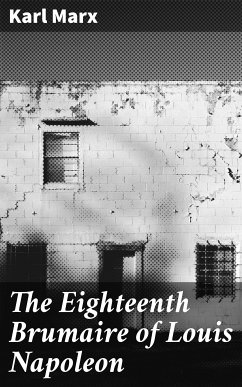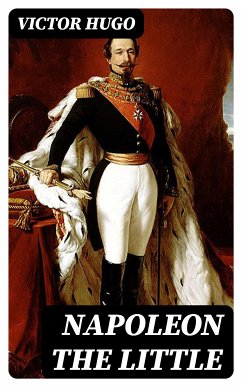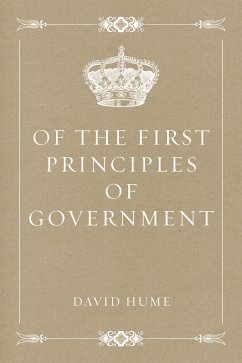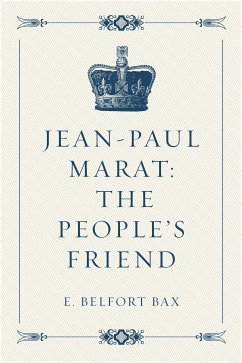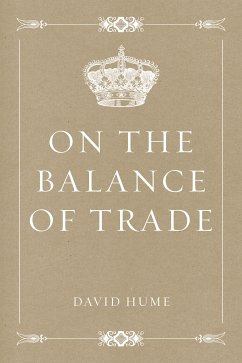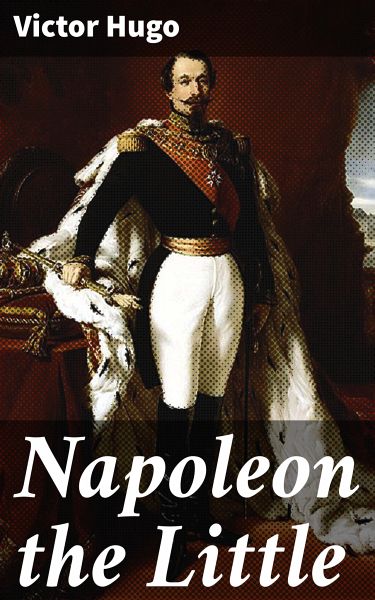
Napoleon the Little (eBook, ePUB)
Enriched edition. Exploring the perils of authoritarian rule through sharp political satire and social commentary in 19th century France
Kommentar: Holloway, Jade / Redaktion: Good Press

PAYBACK Punkte
0 °P sammeln!
In "Napoleon the Little," Victor Hugo delivers a scathing critique of Napoleon Bonaparte's legacy, interweaving historical analysis with impassioned prose. This polemical work is both a biography and a vehement denunciation of what Hugo perceives as tyranny masquerading as heroism. Written in response to the rise of the authoritarian regime of Napoleon III, whom Hugo vehemently opposed, the text employs a mix of poetic language and sharp rhetoric, illustrating Hugo's mastery of style and his belief in the moral duty of literature. The book reflects the contemporary political unrest in France d...
In "Napoleon the Little," Victor Hugo delivers a scathing critique of Napoleon Bonaparte's legacy, interweaving historical analysis with impassioned prose. This polemical work is both a biography and a vehement denunciation of what Hugo perceives as tyranny masquerading as heroism. Written in response to the rise of the authoritarian regime of Napoleon III, whom Hugo vehemently opposed, the text employs a mix of poetic language and sharp rhetoric, illustrating Hugo's mastery of style and his belief in the moral duty of literature. The book reflects the contemporary political unrest in France during the Second Empire, where Hugo's own exile compels him to champion democracy and justice against despotism. Victor Hugo, a venerated figure in French literature, is known not only for his novels like "Les Misv©rables" and "The Hunchback of Notre-Dame" but also for his passionate activism. His disdain for dictatorship and his advocacy for social change were both crystallized in his life experiences which included political exile and his deep commitment to human rights. These influences shaped his portrayal of Napoleon as a complex figure who, despite his initial revolutionary promise, transformed into a tyrant who suppressed freedom. "Napoleon the Little" is an essential read for anyone interested in the intersection of literature and politics. Hugo's insights challenge readers to reflect on the implications of power and the responsibility of individuals in the face of moral and ethical dilemmas. This book not only enriches the understanding of French history but also serves as a timeless reminder of the fragility of freedom, resonating powerfully with current global concerns. In this enriched edition, we have carefully created added value for your reading experience: - A succinct Introduction situates the work's timeless appeal and themes. - The Synopsis outlines the central plot, highlighting key developments without spoiling critical twists. - A detailed Historical Context immerses you in the era's events and influences that shaped the writing. - An Author Biography reveals milestones in the author's life, illuminating the personal insights behind the text. - A thorough Analysis dissects symbols, motifs, and character arcs to unearth underlying meanings. - Reflection questions prompt you to engage personally with the work's messages, connecting them to modern life. - Hand-picked Memorable Quotes shine a spotlight on moments of literary brilliance. - Interactive footnotes clarify unusual references, historical allusions, and archaic phrases for an effortless, more informed read.
Dieser Download kann aus rechtlichen Gründen nur mit Rechnungsadresse in A, B, BG, CY, CZ, D, DK, EW, E, FIN, F, GR, H, IRL, I, LT, L, LR, M, NL, PL, P, R, S, SLO, SK ausgeliefert werden.




